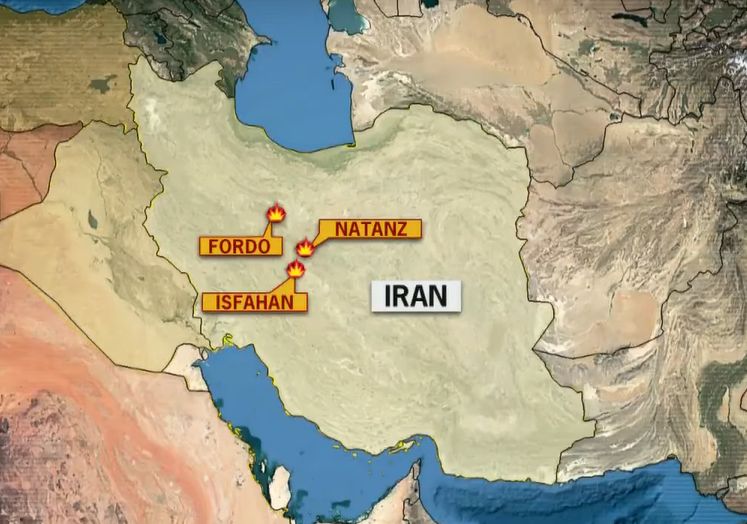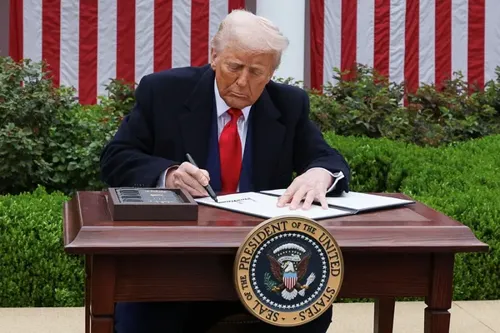US Carries Out Precision Strikes on Iranian Nuclear Sites as Trump Calls for Peace Through Strength
American Forces Launch Airstrikes on Iranian Nuclear Facilities
In a major escalation of the conflict between Israel and Iran, former U.S. President Donald Trump announced that American forces have carried out targeted airstrikes on three key nuclear sites within Iran. The operation, which took place over the weekend, involved a full aerial assault on strategic locations in Fordow, Natanz, and Esfahan—known hubs of Iran’s nuclear development efforts.
Trump confirmed the mission's success, emphasizing that all aircraft involved in the operation safely exited Iranian airspace after completing their objectives. According to his public statement, Fordow was the primary target, receiving a full payload of bombs.
Trump Applauds U.S. Military and Issues a Message of Peace
Following the strike, Trump expressed strong support for the U.S. armed forces, commending their efficiency and valor. “There is not another military in the world that could have executed this mission,” he stated, adding, “Now is the time for peace.”
He further announced a public address scheduled for 10 p.m. local time to speak directly to the nation regarding what he described as a “very successful military operation.” In his remarks, Trump declared the event a “historic moment” not only for the United States but for Israel and the broader global community, urging Iran to “agree to end this war.”
Background to the Escalating Israel-Iran Conflict
Tensions between Israel and Iran had already reached a critical point prior to the U.S. involvement. The conflict intensified when Israel launched “Operation Rising Lion,” targeting Iranian nuclear and military installations. The offensive focused on halting Iran’s nuclear capabilities, with strikes reportedly aimed at high-ranking military officials and nuclear scientists.
Israel claimed that the operation was necessary, asserting that Tehran was dangerously close to developing a nuclear weapon. The aggressive stance drew international attention and concern over potential regional destabilization.
Casualties and Retaliation
As the conflict unfolded, the human toll began to rise. Reports from an Iranian human rights organization based abroad indicated that over 600 people had died in Iran as a result of ongoing military actions. Meanwhile, Israeli officials stated that Iran had retaliated by launching 450 missiles and deploying 1,000 drones, which resulted in the deaths of at least 24 people on Israeli soil.
Netanyahu Supports U.S. Action
Israeli Prime Minister Benjamin Netanyahu voiced strong approval of the U.S. decision to intervene militarily. In a video statement, he praised Trump’s leadership and reiterated the shared belief in achieving “peace through strength.”
“First comes strength, then comes peace,” Netanyahu said. “Tonight, Donald Trump and the United States acted with a lot of strength.”
A Call for De-escalation and Diplomatic Resolution
While the airstrikes represent a significant show of military might, Trump’s messaging suggests an intention to pivot toward de-escalation through diplomatic channels. By highlighting the success of the mission and coupling it with a call for peace, Trump positioned the action as both a deterrent and a potential turning point in the broader conflict.
The coming days are expected to be pivotal, with global leaders closely watching Iran’s next moves and international responses to the U.S. entry into the conflict.
Global Implications
The strikes mark a profound shift in the geopolitical landscape, indicating deeper U.S. involvement in Middle Eastern conflicts amid growing nuclear tensions. Analysts warn that while such actions may deter Iran in the short term, they also carry the risk of sparking wider regional unrest if not followed by robust diplomatic engagement.
The world now waits for Iran's response—and whether Trump's appeal for peace will lead to a meaningful resolution or further confrontation.





COMMENTS (0)
Sign in to join the conversation
LOGIN TO COMMENT